Reading and finding solutions to problems is a vital skill to make ourselves more productive. Right!
Being a developer or computer lover. Are you looking for a good programming books to read?
If Yes! Just scroll down to find the books because:
“Reading enhances logical thinking and motivates analyzing skills.”
Here’s my recommended list of all-time organized book that should be read as a programmer.
And, I have also tried to provide you with the pdf link of these programming books so that you can easily go through it and can enjoy your reading just in one click.
1. Clean Code: A Handbook of Agile Software Craftsmanship
Author: Robert C. Martin
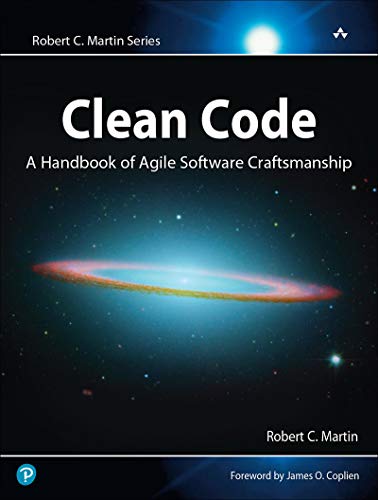
The book “Clean Code” is the series of Robert C. Martin.
This book is ideal for experienced software developers, engineers and managers who want the deep-understanding of clean code craftmanship principles quickly.
Robert C. Martin tried to aware people about the importance of clean code that-
Even a bad code can function but if the code isn’t clean, it can bring problems in future.
According to him, every year countless hours and significant resources are got lost because of poorly written code.
The ‘clean code’ shows a clean way to work together as a team and how to produce maintainable software for the long term.
At last, I wanna say that- this book may save your time from re-reading the various book to get quick knowledge.
You can download the pdf from here: Clean Code: A Handbook of Agile Software Craftsmanship.
2. Code: The Hidden Language of Computer Hardware and Software
Author: Charles Petzold

Charles Petzold book seeks to teach how personal computers work at a hardware and software level.
In this book, the word ‘code’ usually means:
- A system for transferring information among people and machines.
- In other words, code lets you communicate. Sometimes we think of codes as secret. But most codes are not. Indeed, most codes must be well understood because they’re the basis of human communication.
Petzold begins the book by discussing older technologies like Morse code, Braille, and Boolean logic, which he uses to explain vacuum tubes, transistors, and integrated circuits.
The book also covers more recent developments including floating-point math, operating systems, and ASCII.
And through Code, we see how the human compulsion to communicate have driven the technological innovations of the past two centuries.
Once in an interview, he said that his “main hope” in writing Code was to impart upon his readers a “really good feeling for what a bit is, and how bits are combined to convey information”.
You can download the pdf from here: Code: The Hidden Language of Computer Hardware and Software
3. But How Do It Know? — The Basic Principles of Computers for Everyone
Author: J. Clark Scott
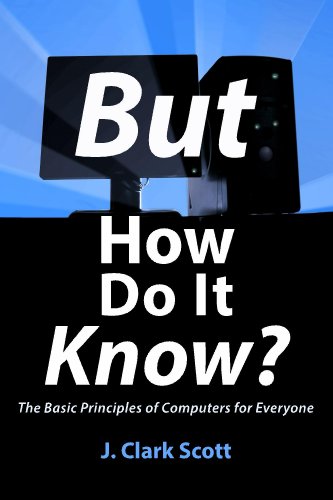
“But How Do It Know?” is the book you have been looking for if you want to know how computers work.
This book can be easily understood by both technical and non-technical students.
The computer seems mysterious and magical as how can they do what they do? they play games, draw pictures, rating etc. all are explained here.
All the things from CPU to keyboard inputs are explained here if you are curious about it then, must read.
This book explains the topics like:
- What is a bit?
- What is a byte?
- What is RAM?
- What is the CPU?
- What is the clock?
- What is a computer?
- What is a program?
- How do the parts work together?
- And much much more…
According to me, this is the best to understand the function of the computer.
You can download the pdf from here: But How Do It Know? — The Basic Principles of Computers for Everyone
4. Hacker’s Delight (2nd Edition)
Author: Henry S. Warren
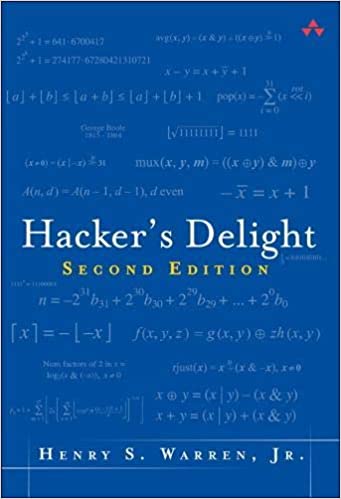
“Hacker’s Delight” is a book written by Henry S. Warren.
Actually, Hacker’s delight is a software algorithm book published by Addison Wesley Professional.
The first edition was released in 2002 where varieties of programming algorithm are discussed.
But, the second edition was released in 2003 which includes new chapters on cyclic redundancy code (CRC) and other error-correction codes.
Extensive addition to the this edition includes:
- A new chapter on cyclic redundancy checking (CRC) and on error-correcting codes (ECC) including routines for the Hamming code
- More coverage of integer division by constants, including methods using only shifts and adds
- Computing remainders without computing a quotient
- New algorithms for compress and expand
- An LRU algorithm
- Floating-point to/from integer conversions
- And many more…
So, if you are interested in exploring the above topics then this is a best book to study.
You can download the pdf from here: Hacker’s Delight (2nd Edition)
5. Hackers: Heroes of the Computer Revolution
Author: Steven Levy

This is a book which best describes the hacker’s culture.
Levy describes the people, the machines, and the events that defined the Hacker Culture and the Hacker Ethic, from the early mainframe hackers at MIT, to the self-made hardware hackers and game hackers.
Levy’s classic book traces the exploits of the computer revolution’s original hackers – those brilliant and eccentric nerds from the late 1950s through the early ’80s who took risks, bent the rules, and pushed the world in a radical new direction.
So, if want to know the hackers’ life and how it became the computer revolution you can go through it.
You can download the pdf from here: Hackers: Heroes of the Computer Revolution
6. Where Wizards Stay Up Late: The Origins Of The Internet
Author: Katie Hafner
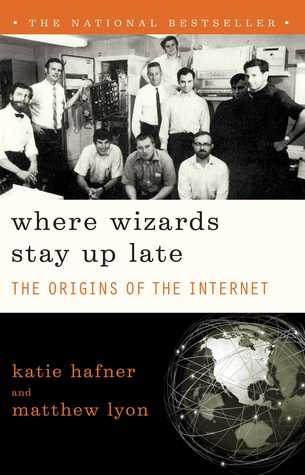
Twenty-five years ago, it didn’t exist. But today, in the 21st century, twenty million people worldwide are surfing the Net.
“Where Wizards Stay Up Late” chronicles the true early beginnings of the Internet and the many hard-working engineers.
It shares the exciting story of the pioneers responsible for creating the most talked about, most influential, and most far-reaching communications breakthrough since the invention of the telephone.
At a time when computers were mainly used as processing machines, one man, J.C.R. Licklider, from MIT, saw their potential as communication devices.
With the help of a small group of engineers and researchers, Licklider’s created the foundation for the Internet that we know today.
At last I wanna to say that it is a book that best describes the journey of Internet and pioneers of it.
You can download the pdf from here: Where Wizards Stay Up Late: The Origins Of The Internet
7. Refactoring: Improving the Design of Existing Code
Author: Martin Fowler
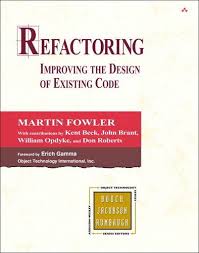
Refactoring is the process of improving poorly designed, inefficient programs so they are simpler and easier to maintain.
This book is especially for the professional programmer, a guide to refactoring.
The author tries to show you how to do refactoring in a controlled and efficient manner.
Refactoring can be done in different languages but here the author uses Java as a language to show examples.
As being a senior designer or architect, it becomes very important to understand the principles of refactoring for an efficient project.
You can download the pdf from here: Refactoring: Improving the Design of Existing Code
The first edition of this book is also very informative, you can also go through it .
8. Code Complete
Author: Steve McConnell
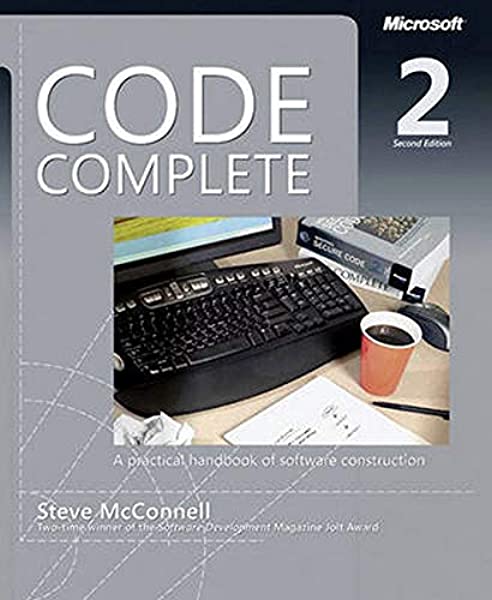
This a best book for the programmer to learn the software construction.
According to the author- The gap between the best software engineering practice and the average practice is very wide.
This handbook will help you create higher quality software more quickly and with fewer errors to narrow the gap.
At last, I would say- no matter what kind of background the reader has, reading this book would help you write better applications in a shorter period of time, much more easily.
You can download the pdf from here: Code Complete
9. Fire in the Valley: The Birth and Death of the Personal Computer
Author: Michael Swaine, Paul Freiberger
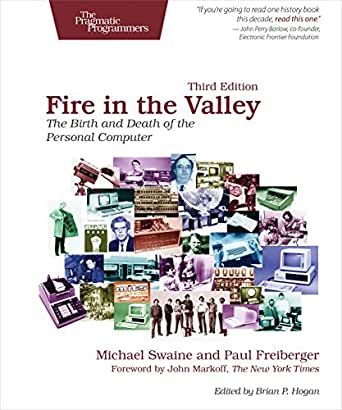
For those looking for the history of the birth, development and revolution of PC, this book is a fascinating one.
Fire in the Valley: The Birth and Death of the Personal Computer is the history of personal computers.
This book details the role of people who were involved in the early and middle years of the PC revolution and also provides the historical background of computers.
‘Fire in the Valley’ is written by two computer writers who were there from the start, drawn from the interviews with the people who made it happen.
You can download the pdf from here: Fire in the Valley: The Birth and Death
10. The Passionate Programmer: Creating a Remarkable Career in Software Development
Author: Chad Fowler
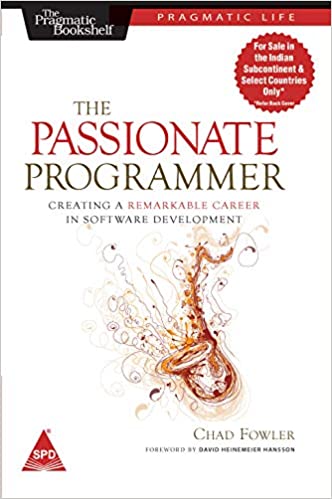
A remarkable career does not come just by chance, it requires thought, intention, action and willingness to do it.
A book by ‘Chad Fowler’ is a great book which helps developers to create a remarkable and successful career in software development.
You’ll learn to become an entrepreneur, driving your career in the direction of your choosing.
This is the book with solid actionable advice which is usually rare to find in one place.
You can download the pdf from here: The Passionate Programmer: Creating a Remarkable Career in Software Development
11. Cracking the Coding Interview: 189 Programming Questions and Solutions
Author: Gayle Laakmann McDowell
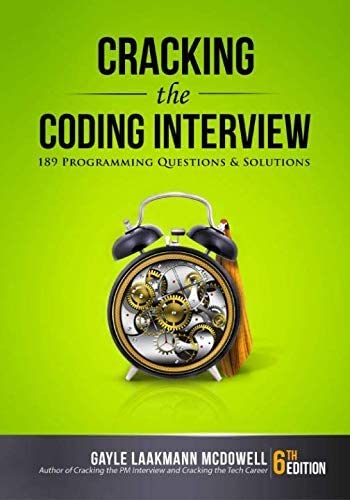
Are you preparing or wants to prepare for an interview in top companies?
If Yes! Then, this Mcdowell book is for you.
This book reflects what’s actually asked at the companies so that you can prepare according to it.
You must be thinking- What’s inside?
There are 189 programming interview questions with solutions ranging from basics to tricky one.
It’s a deep technical book and focuses on software engineering skills i.e. a walk-through of how to derive each solution and how to get there yourself.
You can download the PDF from here: Cracking the Coding Interview: 189 Programming Questions and Solutions
12. The Soul of A New Machine
Author: Tracy Kidder
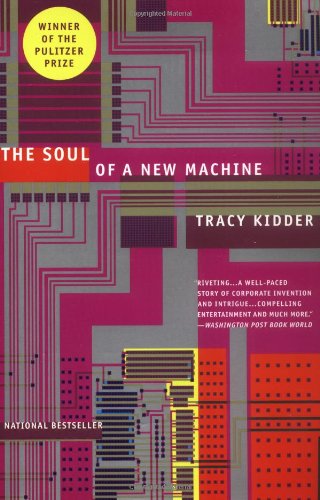
The Soul of a New Machine is a non-fiction book written by Tracy Kidder and published in 1981.
It’s a story of computer engineering team racing to design a next-generation computer at a blistering pace under tremendous pressure.
It also describes the intricacies of designing and debugging such a machine, where you have to control the flow of electric current through thousands of chips.
I’d recommend this book to anyone engaged in engineering in general, and computer-related in particular – they will certainly enjoy it.
You can download the PDF from here: The Soul of A New Machine
13. Soft Skills: The software developer’s life manual
Author: John Sonmez
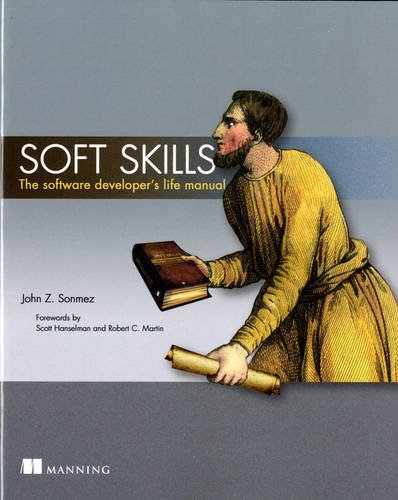
This book is a guide to a well-rounded, satisfying life as a technology professional.
For most software developers, coding is the fun part. Right!
The hard bits are dealing with clients, peers, and managers, staying productive, keeping yourself in shape and if you are also facing these problems then this is for you.
The author ‘John Sonmez’ offers advice to developers on important “soft” subjects like career and productivity, personal finance, even fitness and relationships.
John Sonmez arranged as a collection of 71 short chapters, this fun-to-read book invites you to dip in wherever you like.
14. Inside the Machine: An Illustrated Introduction to Microprocessors and Computer Architecture
Author: Jon Stokes
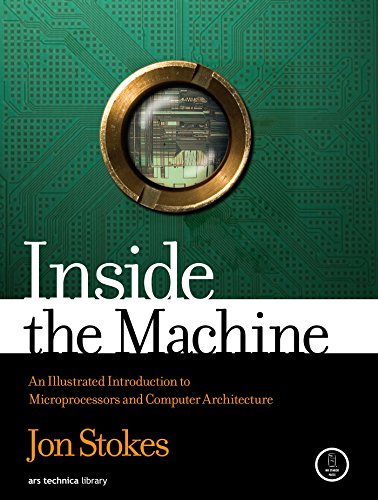
This book by Jon Stokes best describes the different parts of computer architecture and what goes on behind the scenes of programming.
Jon explains, how microprocessors operate-what they do and how they do it with colour pictures and in clear language.
After discussing computers in the abstract, the book examines specific microprocessors from Intel, Motorola and IBM from the original models up through today’s leading processors.
In shorts, this is really a good introductory Computer Architecture book to start.
You can download the pdf from here: Inside the Machine: An Illustrated Introduction to Microprocessors and Computer Architecture
15. Coders at Work: Reflections on the Craft of Programming
Author: Peter Seibel
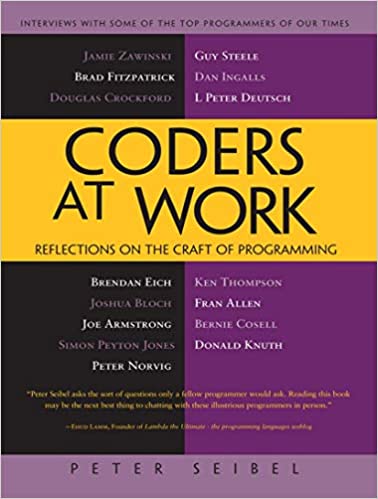
16. Rapid Development: Taming Wild Software Schedules
Author: Steve McConnell
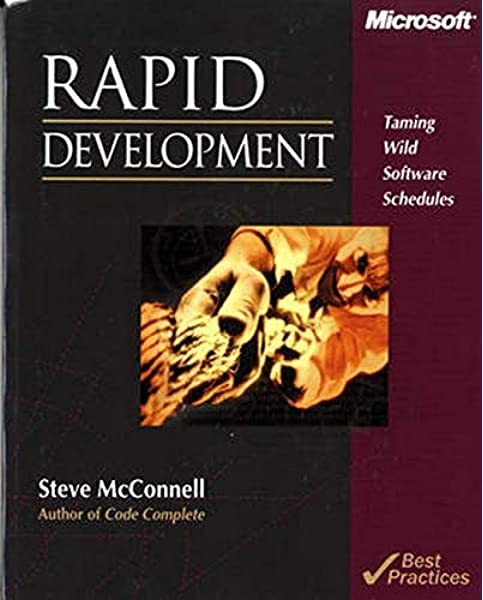
17. Code Simplicity: The Fundamentals of Software
Author: Max Kanat-Alexander
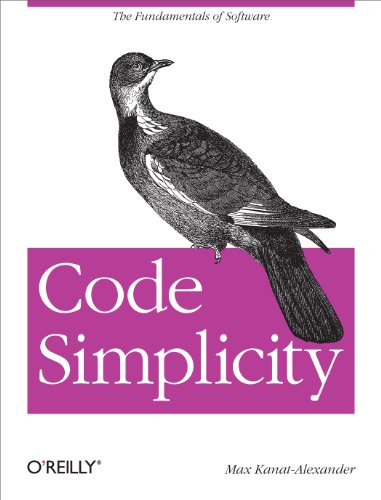
Code Simplicity is the book you have been looking for if want to learn how to build the excellent software.
According to Max’s view and interpretation of software industries, the focus of the book is primarily on “software design” and “why simplicity is the most important quality of software”.
Every complexity of software design is simplified at last to make the software used by everyone.
Code Simplicity is also written in such a way that even a non-technical software manager can also understand.
This book includes the topics like:
- How to bring simplicity and success to your programming world
- Clues to complexity – and how to build excellent software
- Why Programmers suck and how to suck less as a programmer
- What is a bug? Go deep into debugging and many more.
You can download the pdf from here: Code Simplicity: The Fundamentals of Software
18. The Clean Coder: A Code of Conduct for Professional Programmers
Author: Robert C. Martin
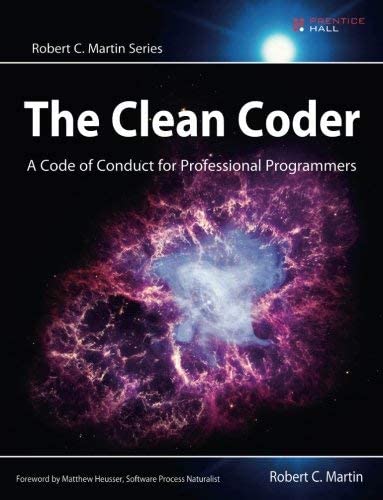
This book is a series of Robert C. Martin.
By this book, legendary software expert Robert C. Martin introduces the disciplines, techniques, tools, and practices of true software craftsmanship.
This book is packed with practical advice about everything from estimating and coding to refactoring and testing.
Martin shows how to approach software development with honour, self-respect, and pride; work well and work clean; communicate and estimate faithfully; face difficult decisions with clarity and honesty, and understand that deep knowledge comes with a responsibility to act.
Readers will learn What it means to behave as a true software craftsman? How to deal with conflict, tight schedules, and unreasonable managers? etc.
The Clean Coder will help you become one of them and earn the pride and fulfilment that they alone possess.
You can download the PDF from here: The Clean Coder: A Code of Conduct for Professional Programmers
Conclusion:
Being a programmer or a student, if you ae interested or willing to learn about computer, machines, codes or software development then,
Above provided programming books are the best choice to give a new ride to your interest and to explore yourself more and more by self-reading.
Today’s an era where people can gain knowledge according to their interest in any field by own.
Are you willing to explore yourself?
If Yes! then this blog will help you to choose the book according to programmers point of view.
That’s all. Enjoy your reading!
Leave a Reply